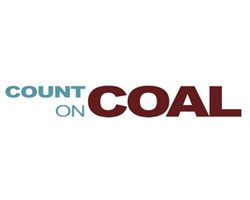States Find New Friends

August 10, 2017 - Last week, two seemingly disparate events showed how some in the Trump administration are holding fast to promises and principles. Both events encouraged state partnership and welfare in energy development.
The first event was a subdued birthday party at the Department of the Interior, where the Office of Surface Mining and Regulatory Enforcement (OSM) observed its 40th anniversary. Congress passed OSM’s authorizing law, the Surface Mining Control and Reclamation Act (SMCRA), in 1977, directing the agency to strike “a balance between protection of the environment … and the Nation’s need for coal …"
Under broad direction from OSM, SMCRA authorizes state agencies to issue permits and oversee reclamation for every ton of coal mined. States also issue permits for legacy mine reclamation established under the law’s Abandoned Mine Land fund. Coal companies provide the money and reclaim legacy mines that they had nothing to do with.
Congress envisioned this federal and state partnership, avoiding a one-size-fits-all regulatory program, because in a continent-sized country one size cannot possibly fit all mining regions. From the flat, arid plains of Wyoming and Montana to the rainy, mountainous Appalachians and the variety in between, coal fields differ. Alaska is not Alabama even though both begin with an “A”.
In recent years, Washington lost sight of this fact. Coal states did not.
At the birthday ceremony last week, Deputy Secretary David Bernhardt reminded OSM staff that “striking a balance” means working with state agencies. OSM has previously acknowledged that states do 97 percent of the oversight work but it ignored states when it arbitrarily changed SMCRA’s basic regulatory requirements in 2015.
In the second event last week, the Department rescinded a rule, finalized on Jan. 1, that would change how coal and other fossil fuels extracted from federal land would be valued.
How? By using the price of electricity to value coal and using other means to value coal sold in certain non-arms-length transactions – provisions that even Department staff were uncertain how to apply. The secretary would enjoy sweeping new powers to impose a new valuation method, maybe even a carbon tax. The additional revenue to taxpayers from “valuing” coal differently? Zero, concluded OMB.
That’s why Secretary Zinke’s staff said the new rule would “unnecessarily burden … domestic energy production.” It pledged to replace the rule with a better valuation method “in the near future.”
Small wonder coal-producing states – fearing the loss of more jobs and revenue from declining production on federal land – were concerned. They are relieved today.
Environmental activists may have lost friends in Washington. But the states have found some.


